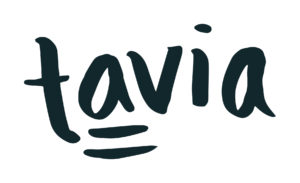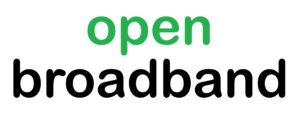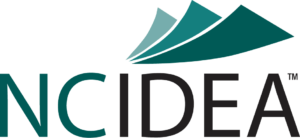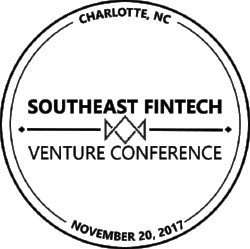Charlotte Angel Connection Episode 038: Eileen Stephens Co-Founder of Tavia, Part II
Today, we welcome back Eileen Stephens of Tavia for Part II of the podcast. Last week we learned about Tavia as well as about Eileen and Skip. In our discussion, we touched base a lot on what it has taken to get the company to this point - right on the edge of going live. In today's podcast, we began to focus more on the future of the company and what it's been like at home.
Here are some key topics from today's podcast:
We talk more about their 'go live' strategy and how they are going to launch the company into the market place (e.g., an ambassador program) and who their current and future target market is.
We learned they are already working on additional products they can launch and how Parsons School of Design in New York City is helping them develop it.
We again talk about the benefit if mature entrepreneurs (vast network of colleagues and contacts needed to expand the reach of the company).
We learn Eileen and Skip have a very firm grasp on the business model and have thought thoroughly about why the b business is structured the way it is.
If it wasn't apparent in the last podcast, we continue to learn Eileen and Skip are dedicated to having a positive impact with girls across the world.
I had to ask what it's been like at home as Eileen has become involved in developing a startup 'after hours' and what has been the contribution from her husband and three kids (including a 15-year old son)!
You will also here me mis-speak part way through the interview. I mention potentially hitting 4,000 subscribers. I meant 4 million. Again, Tavia can be a big company. Hopefully this gets you excited about spreading the word of this new Charlotte startup.
Stay tuned next week as we release the first part in a two part podcast with Lucas Timberlake, Partner with Fintech Ventures Fund - a Venture Capital Fund with a Fintech focus based out of Atlanta. I met Lucas at the Southeast Fintech Venture Conference in Charlotte back in November 2017 and wanted to get his thoughts on Venture Capital, startups and Charlotte. It turned out to be a really good two part series!
Charlotte Angel Connection Episode 037: Eileen Stephens, Co-Founder of Tavia
Today we welcome Eileen Stephens Co-Founder of Tavia. Tavia has the opportunity to be a wonderful company here in Charlotte. The concept is a mix between Dollar Shave Club and Tom's, except it is for feminine products. The concept will allow women to have their product of choice delivered monthly to them (in a non-descriptive package) and have a year long supply of culturally appropriate product delivered to a school age girl in Africa initially (with the ability to expand to other areas).
Eileen and her Co-Founder Skip Amos are another set of mature entrepreneurs who are utilizing their contacts and resources to help them build the base of a company that can scale quite large. It's an awesome story and was a great opportunity for me to learn more from Eileen about how they done it and who has helped them along the way.
I hope you will enjoy the podcast as we explore some of the following:
When did the idea develop and what was the moment, or series of moments, leading into it?
How do you get used to things not going according to plan, or schedule, with the company?
How were they found the capital to help get the business off the ground?
Who is the recipient of the 'give one' model and how will that work?
What is the impact this will have on those communities?
How were they able to find the first school and what was it like visiting there?
How were they able to find such enthusiastic partners as the business developed?
As you listen, it becomes pretty apparent Tavia can be a really big company having a global impact, right here in Charlotte. Listen in next week to learn more about the business and what they have up their sleeves for 2018!
Charlotte Angel Connection Episode 036: Alan Fitzpatrick CEO and Co-Founder of Open Broadband Part II
Today we welcome back Alan Fitzpatrick, CEO and Co-Founder of Open Broadband, Co-Founder of Charlotte Hearts Gigabit and NC Hearts Gigabit.
For today's podcast, we pick up right where we left off with Alan and jump head first into how he keeps from becoming too excited and too depressed as he rides the ups and downs common to all startups.
From there we pick up in some comfortable territory as we discuss:
What gets Alan excited about 2018? Huge market, nationwide.
What do you look for in terms of customers before you commit to going into an area.
The best entrepreneurs aren’t extraordinary risk takers and
Why doesn’t Alan go back to the corporate world rather than the startups?
Other than raising money what has been the most challenging aspect of 2017 for Open Broadband?
How are they approaching employee compensation and stock options?
It’s easy to spend money...but it’s hard to generate it.
What are the benefits of having a Co-Founder?
At what point does Alan start to think about the scaling the company to a national level and/or selling the business?
What’s it been like for Alan to see the startup scene in Charlotte grow up since 2011 or 2012?
Does Charlotte need Amazon HQ2?
Open Broadband is a young company but they are mature founders who have clear vision. As 2018 fast approaches, it will be exciting to see what they accomplish in the next 12 months. Stay tuned....
Charlotte Angel Connection Episode 035: Alan Fitzpatrick CEO and Co-Founder of Open Broadband
Alan Fitzpatrick is CEO and Co-Founder of Open Broadband, Co-Founder of Charlotte Hearts Gigabit and NC Hearts Gigabit. He’s a long-time supporter and member of the Charlotte startup community and I’m excited to bring you today’s podcast with Alan. We had our interview on the day after the Southeast Fintech Venture Conference and you will hear us reference it throughout this week and next week’s interview. Alan and I almost immediately jumped straight into the interview – where as I typically start the interview after a few minutes of pleasantries so don’t feel like you’ve missed anything.
Today’s podcast covers a broad range of topics so listen carefully. As the interview progresses, you can get a clear sense Alan has been around startups for a long time. He has a very clear sense of awareness and it comes through during several points in the interview. Some of the areas we cover today are:
How is Open Broadband doing as we close out 2017?
Who is their target market and how are they selling into those markets?
How did they decide to start Open Broadband? What is the driving force behind the concept of delivering high speed internet to rural communities? Teaser 78% of the country has no access to high speed internet or only 1 provider (i.e., no competition for business).
What type of speed can Open Broadband deliver to its customers?
How is high speed delivered to rural markets and why aren’t traditional internet providers currently doing it?
What’s their competition?
Can’t these customers just use a mobile hotspot rather than have to sign up for Open Broadband?
As an entrepreneur who left DC 74 after it was sold, how long did it take Alan to come up with the concept and business model for Open Broadband?
How did Alan and Kent Winrich come together as co-founders of Open Broadband?
What has the year been like for Alan and the company?
They brought revenue in the door in the first month. Why did they do that and how did they make the decision to do so.
Open Broadband raised a small seed round to help out of the gate. What was the experience like to raise that money and what is their strategy for raising money in the future?
What’s the end market for Open Broadband?
What advice does Alan have for new entrepreneurs when it comes to building a startup in Charlotte and the fundraising process in Charlotte?
What happened when Alan went up to New Ventures in Winston Salem?
What’s the term Alan thinks every startup needs to take to heart?
So we wrap up this part talking about perseverance? This leads into some key topics we discuss for next week’s podcast including how does Alan handle the inevitable ups and downs of ‘the startup life’, what is on the horizon for Open Broadband in 2018, does Charlotte want/need Amazon HQ2 and many other topics around startups in Charlotte.
So join us next week on the Charlotte Angel Connection for the 2nd part of our interview with Alan Fitzpatrick!
Charlotte Angel Connection Episode 034: Thom Ruhe President and CEO of NC IDEA Part II
Today on the Charlotte Angel Connection, we welcome back Thom Ruhe - the CEO and President of NC IDEA for the second part of our interview. Thom has been at NC IDEA since February 2016 and has already made great strides into continuing to develop and enhance entrepreneurship in North Carolina.
Again this is a longer discussion but a worthwhile one for us to exceed our typical time limit.
Today we start off the interview talking about Thom’s first impression of Charlotte after taking the job and what it takes to move the startup needle further in Charlotte. Thom talks about the KeyBank giving $24 million to JumpStart – a similar organization to NC IDEA in Cleveland – but there is still a lack of support among the corporations in Charlotte.
We talk about human capital – how the big corporations are allowing employee’s volunteer time to support efforts like QC Fintech – and how that is different from financial capital. Finally, Thom touches on the intellectual capital as well.
Thom also talks about how banks can be the first customer to many of these Fintech companies and how the ‘first customer’ issue many startups face could be lowered if the banks opened up a little more. As he talks about it though, he mentions how this process could be messy and ‘chunky’ and not a panacea. However, it could be just as important for startups to have the banks serve as first customers as it would be to have them be early stage investors.
Thom and I further discuss how early stage capital is developing in Charlotte. We now have the Charlotte Angel Fund, VentureSouth, IDEA Fund, Wolfpack Investment Network (WIN), Duke Angel Network (DAN), and Carolina Angel Network (CAN). The North Carolina Venture Capital Multiplier Fund run by Hatteras Venture Partners also has a sidecar fund that will co-invest along with WIN, DAN, and CAN. Ideally, Thom would like to see this network of university led investor networks expand into Charlotte through Davidson and UNCC.
Thom continues to go back to the three different types of capital in Charlotte. How do we further develop the talent in Charlotte as we don’t have a ton of serial entrepreneurs?
I asked Thom about the perception that NC IDEA doesn’t support the Charlotte startup scene. His response is eye opening and should continue to light a fire under Charlotte entrepreneurs.
We talk about how Charlotte still has a ‘cool club’ feel to the startup ecosystem and Thom tosses out some thoughts on that as well.
We wrap up with Thom’s thoughts on HQ2 and the bidding process that has taken place.
Stay tuned for next week when we release our first of two podcasts with Alan Fitzpatrick Co-Founder of Open Broadband. Alan’s long-term involvement in the Charlotte startup scene makes him a very well respected person but his startup is the main topic of our conversation. Join us to learn more about how they are doing!
Charlotte Angel Connection Episode 033: Thom Ruhe, President and CEO of NC IDEA
Today on the Charlotte Angel Connection, we welcome Thom Ruhe - the CEO and President of NC IDEA for the first of a two part interview. Thom has been at NC IDEA since February 2016 and has already made great strides into continuing to develop and enhance entrepreneurship in North Carolina.
Many in Charlotte see a favoritism to the Triangle from NC IDEA so I wanted to talk with Thom to figure out who he was, what NC IDEA is doing and how it impacts Charlotte. What ended up happening was a great discussion on all things start in North Carolina and Charlotte in a very open and candid conversation.
Thom wants to see success here in Charlotte's startup scene - I have no question about that. Thom also believes NC IDEA can help in several ways. Today's discussion dove into the following questions:
1) What are the four programs currently offered by NC IDEA and what do they do?
2) What did Thom bring from the Kauffman Foundation to NC IDEA?
3) What has best equipped Thom over the years as an entrepreneur, investor, mentor, advisor and volunteer to lead NC IDEA?
4) Can NC IDEA effectively support the entire state of NC?
5) Charlotte doesn't have the benefit of a large research institution, medical school or other attributes typical for many startup areas. What is the future of startups in Charlotte?
Listen to Part I and then wait for Part II where we dig deeper into what Thom thinks can make Charlotte more successful in the startup scene, Charlotte's perception of being slighted by NC IDEA and the state, Amazon HQ2, and Greg's Brown welcoming to the NC IDEA Board.
Charlotte Angel Connection Episode 032: Part II QC Fintech Class 7 Accelarator Companies Capway, Qbrics, and Qoins
Today we have the second part of the two part series with three companies from Class 7 of QC Fintech. Sheena Allen from Capway, James Safran from Qbrics, and Christian Zimmerman and Nate Washington from Qoins joined us to discuss their startups and life inside of Class 7.
If you want to see the companies after they have wrapped up you can come to the Southeast Fintech Venture Conference on November 20th (an all day event at Barings new headquarters in Charlotte) or just come out to listen to Class 7 at their Demo Day. Check out our recent podcast with Dan Roselli and Sarah Smith to learn more about the upcoming Venture Conference.
In today’s interview, I wanted to focus on the companies a little more and their experiences. As such, we dig into the following questions:
- What’s been their biggest failure (or challenge) to date?
- How do reach out to the partner companies? In essence, they all have to work with large financial companies in some way. How do they reach out and start the conversations to gain ‘traction’.
- Have they hard startup experience in the past and if so what did they learn from those previous experiences that is helping them today?
- What is the camaraderie like in the class? Is there fighting within the program or do they support and help each other?
- What is success for each company?
- Are they raising money?
Stick around for next week as we have our first part of a two part series with Thom Ruhe – the President and CEO of NC IDEA. Thom has ton of experience in the startup world and developing/nurturing the ecosystems supporting them. As such we dive into the role of NC IDEA, what programs they run, more about Tom’s history and what brought him here.
We also dig into the thorny questions about what’s missing in Charlotte from a startup perspective, why Charlotte feels slighted from NC IDEA, should we want HQ2 and much, much more. Check back next week for another episode of the Charlotte Angel Connection.
Charlotte Angel Connection Episode 031: QC Fintech Class 7 Accelarator Companies Capway, Qbrics, and Qoins
Today we have the first part of a two part series with three companies from Class 7 of QC Fintech. Sheena Allen from Capway, James Safran from Qbrics, and Christian Zimmerman and Nate Washington from Qoins joined us to discuss their startups and life inside of Class 7.
This was recorded in late September and I had a chance to talk with two of them again in early November. These companies are developing at a rapid pace. I'm really impressed with both the quality of the founders who are coming into Charlotte AND their development under the mentors, advisors, and staff at QC Fintech. If you want to see the companies after they have wrapped up you can come to the Southeast Fintech Venture Conference (an all day event at Barings new headquarters in Charlotte) or just come out to listen to Class 7 at their Demo Day. Check out last week's podcast with Dan Roselli and Sarah Smith to learn more about the upcoming Venture Conference.
In today's episode we explored the following questions and more.
Who they are and what they do?
What brought these companies to Charlotte and what do they expect to get out of the program?
What’s the benefit of having a co-founder?
What’s been the experience with QC Fintech? What does the program have you doing?
What do negative comments about Bitcoin (i.e., Jamie Dimon) have on businesses working on the blockchain?
The under-banked have been under-served for a long time? What are the challenges ahead for Capway?
What challenges are ahead for Qoins as they ramp up and deliver a great tool to help their users pay off their debt?
Part of the challenge of being a startup is the education component? How are these companies educating their potential customers/users?
What are they getting out of the program?
Who is the best ping-pong player in the class (hint: it sounds like Christian was de-throned but thinks he can earn it back).
In the next session, we dig deeper into the companies and their development. Hang around next week to learn more and get excited for Charlotte's first Venture Conference and Class 7's Demo Day. Support our entrepreneurial ecosystem. If nothing else, come find out what's happening in right here in our city. I promise you will not be disappointed.
Charlotte Angel Connection Episode 030: Dan Roselli and Sarah Smith discussing the Southeast Fintech Venture Conference
Today we welcome back Dan Roselli, Co-Founder and Managing Director of QC Fintech, and Sarah Smith, Program Manager for QC Fintech and a 2016 Venture for America Fellow.
Dan, Sarah and the rest of the team at QC Fintech are bringing Charlotte its’ first venture conference - the Southeast Fintech Venture Conference on November 20, 2017. The event will be hosted at Barings brand new global headquarters which is right across the street from Packard Place - home of QC Fintech.
Our conversation covers a wide array of topics mainly centered on what is the Southeast Fintech Venture Conference and how it can and will impact Charlotte’s startup ecosystem moving forward. As such we cover the following and more:
- Why do a Fintech Venture Conference in the first place?
- What’s it been like for the QC Fintech accelerator to expand from 1 class to 2 classes this year?
- What has it taken to develop and host a Fintech Venture Conference in Charlotte?
- What is the next mountain to climb for Dan, Sarah and the rest of QC Fintech?
- Speaking of mountains, listen to the 2011 launch of Packard Place and how it jumpstarted Charlotte’s startup scene.
- https://www.youtube.com/watch?v=B1HFGhHdo7M
- Is there a missing component in the Charlotte startup scene right now?
- How important has it been to have Barings be the sponsor of the Southeast Fintech Venture Conference?
- Is QC Fintech and the Southeast Fintech Venture Conference an economic development recruitment tool for Charlotte?
- How can Charlotte compete against London and New York as a Fintech hub?
Next week, we have the first part of a two part interview with the founders of Qbrics, Qoins, and Capway and then have a Thom Ruhe from NC IDEA. So stay tuned for a number of great interview on the horizon for the Charlotte Angel Connection.
For more information on the companies presenting at the Southeast Fintech Venture Conference, please see the list below:
· Honeyfi
· uBack
· Ceterus
· Medxoom
· WalletFi
· Accelerator Partner The Venture Center: Monotto & LumoXchange
· Accelerator Partner SixThirty: Cheddar & Painless1099
· Accelerator Partner MACH37: ThreatSwitch & NormShield
· Catapult
· MyLumper
· Payzer
And the list of fantastic companies in QC Fintech Class 7 is:
· CapWay
· QBRICS
· Qoins
· Remotize
· Quarule
Charlotte Angel Connection Episode 029: Yamile Nesrala, Managing Director of Charlotte for Venture for America
This is the second part of our podcast with Yami Nesrala, Director of Miami and Charlotte for Venture for America.
In our interview last week, we spoke a lot about the fellows – who they are, how they are selected and more. This week I wanted to address the benefits the companies and the community get out of Venture for America and then focus on how the community can support VFA in Charlotte. As such, today’s podcast with Yami covers the following:
What does the company get out of hiring a VFA fellow?
Why can’t companies just do this on their own?
What’s the goal for building the VFA program in Charlotte over the course of the next 2 to 3 years?
What does VFA look for in companies for their fellows?
How many company partners does Charlotte have and how can we increase the number of company partners here in Charlotte?
What makes a company successful as a VFA city?
How can Charlotteans support VFA?
Are there volunteers for the Selection Day?
At several points during our interview, Yami mentioned contacting her directly about volunteering or financially supporting VFA in Charlotte. Her email address is yamile@ventureforamerica.org for those of you who want to be a mentor, advisor, offer meeting space, or support VFA financially.
I’m also excited to announce that Charlotte has been selected to host Venture for America’s Selection Day on December 1, 2017. As you heard in the first part of this podcast from Yami, Venture for America has been in Charlotte for three years now and we’ve had 20 VFA fellows come through startups here. Charlotte hosted our first Selection Day in the Spring of 2017 and we are fortunate to have the opportunity to host it again.
This event is a tremendous opportunity to showcase Charlotte to students who may have never been here and could consider coming to Charlotte as a fall 2018 VFA fellow.






